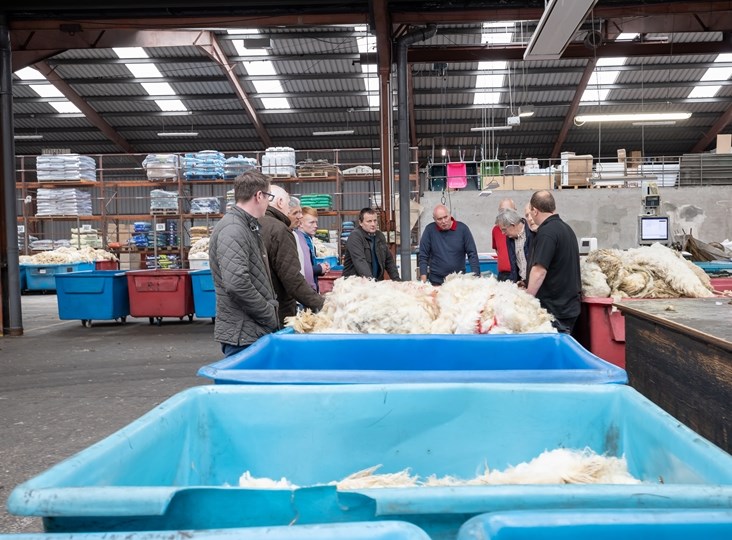Clarification: Ulster Wool is paying an advance on certain types of wool
Despite the extremely challenging cross bred wool market due to Covid-19 Ulster Wool wishes to clarify for all its producers that it has been paying and will continue to pay an advance for certain types of wool this season.
Joe Farren, CEO of Ulster Wool explains “We are offering an advance against the 2020/21 clip for those types of wool where we believe there is material value for producers at current selling prices. The types qualifying for the advance will be the medium and fine types (grades 200 and 300). The advances for each grade of wool have been set at a level which takes into account current selling prices and, on average, the advance will be 20p/kg.” He continued, “the full value for these grades will be paid to producers as always as a balance from May 2021 onwards when producers send in their wool. For all other grades we will make full payment for 2020/21 clips from May 2021 onwards once we have sold the clip and have valuation certainty.”
Joe added “The average advance we will be paying is actually higher than the upfront payment the direct-from-farm buyers are offering this season. On the wool types we aren’t paying an advance for competitor prices are extremely low and we would urge producers to give the market 12 months to recover and send their wool to Ulster Wool who will return them the full and true market value as Ulster Wool, being a farmers’ co-operative, returns all profits to producers”
To try and help supplement this year’s wool cheque Ulster Wool have been in discussions with DAERA with regards to additional funding for the wool sector. Joe explains “We were grateful that Minister Poots took the time to listen to the situation Northern Ireland sheep farmers find themselves in this season. We are however bitterly disappointed that no funds have thus far been made available. This money would have been paid directly to the producer through Ulster Wool with no distribution cost to the government and could have been used to offset this season’s shearing costs.”
 Ulster Wool is paying an advance on certain types of wool
Ulster Wool is paying an advance on certain types of wool 